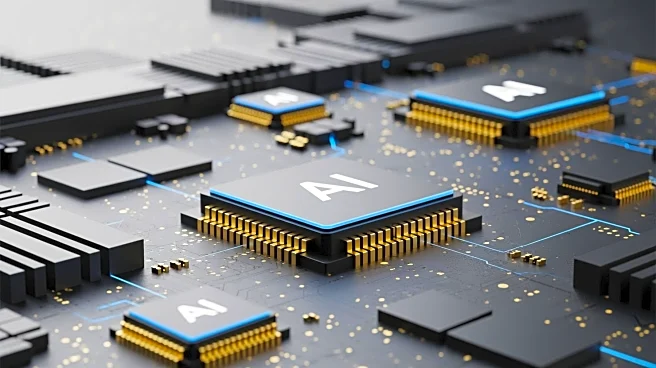What's Happening?
China has implemented a new policy requiring state-backed data centers to exclusively use locally produced AI chips. This directive affects projects receiving government funding, with those less than 30%
complete needing to cancel plans to purchase foreign chips. The policy is part of China's broader strategy to replace foreign technology in its core systems, a move that has been in progress since 2021 with over $100 billion invested in AI data centers. U.S. chipmakers such as Nvidia, AMD, and Intel are expected to face significant setbacks as a result of this policy. Nvidia, in particular, which once dominated 95% of China's AI chip market, will see its market share drop to zero. The policy also impacts Nvidia's high-end H20 chip, which remains available for sale in China. The shift is expected to benefit local Chinese chipmakers like Huawei Technologies, Cambricon Technologies, and others, despite their current lag in power and software tools compared to U.S. products.
Why It's Important?
This development is significant as it represents a major shift in the global semiconductor market, potentially reducing the market share and revenue of major U.S. chipmakers in one of their largest markets. The policy could slow down projects reliant on U.S. technology, affecting the pace of AI development in China. However, it also provides an opportunity for Chinese chipmakers to expand and improve their technology, potentially closing the gap with U.S. competitors. This move is part of a broader geopolitical strategy, with both the U.S. and China investing heavily in AI infrastructure to maintain technological leadership. The policy underscores the ongoing tech rivalry between the two nations, with implications for global supply chains and international trade relations.
What's Next?
The immediate consequence of this policy is a potential slowdown in data center projects in China that rely on U.S. chips. U.S. companies may need to reassess their strategies and explore alternative markets or partnerships. Meanwhile, Chinese chipmakers are likely to receive increased state support to enhance their capabilities and meet domestic demand. The policy could also prompt further regulatory responses from the U.S., potentially escalating trade tensions. Both countries are expected to continue investing in their respective AI sectors, with the U.S. possibly seeking to strengthen its domestic semiconductor industry to mitigate the impact of such foreign policies.









